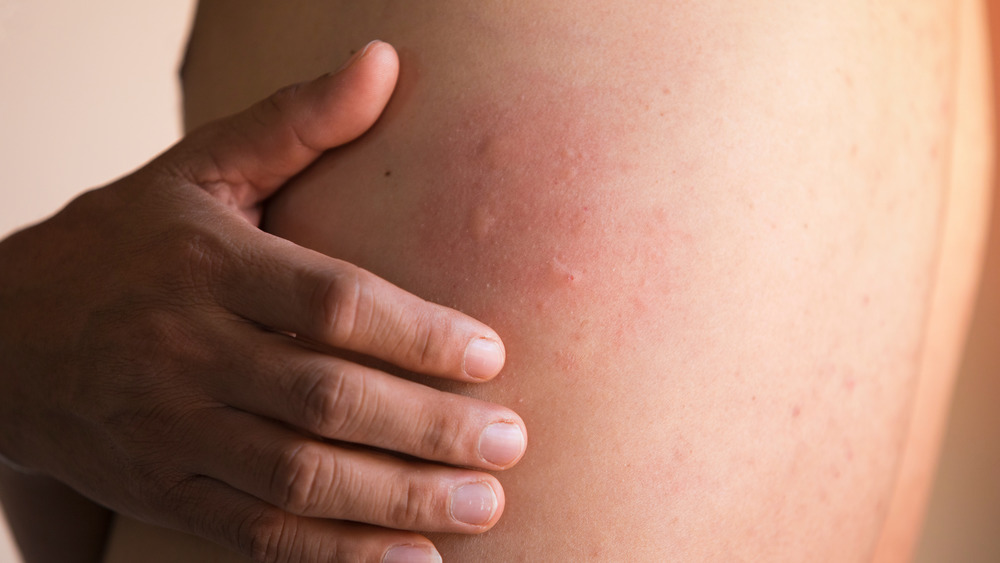You Might Be Allergic To Cold Weather If This Happens
Very few people like to be cold, but for some, cold weather can actually come with a health complication. Though it is rare, it is possible to be allergic to the cold.
The condition is called cold urticaria (CU) and is generally first noticed as hives that form on the skin when exposed to cold weather, according to Healthline. Usually, temperatures need to be lower than 39 degrees Fahrenheit to trigger CU, which can happen due to immersion in cold water or entering a temperature-controlled room like a freezer.
Many symptoms of CU are mild, including hives which get worse as the skin is rewarmed, swelling, fever, headache, fatigue, and joint pain. Some people will have a severe reaction which could lead to serious complications. Theses symptoms include anaphylaxis, trouble breathing or swelling of the tongue or throat, low blood pressure, fainting, and shock. There is a wide range of symptom duration, anywhere from an hour or two up to two days.
Prevention is key with this condition
Though the cause of CU is unknown, some people seem to have skin cells that are more sensitive to cold conditions, according to the Mayo Clinic. When exposed to cold air or water, histamines are released into the body, triggering the allergic reaction.
CU is most commonly seen in young adults and those with autoimmune disorders. In the latter case, it is known as secondary CU. Women are more susceptible, according to the Cleveland Clinic. Viruses like chicken pox, hepatitis, and mononucleosis are also known to trigger CU, per Healthline. In many cases, the condition will disappear after a few years.
For people with CU, bundling up against the cold is the first line of defense. Antihistamines can also be effective in reducing symptoms, although those with serious symptoms may need to carry an epinephrine pen. If you're scheduled to have surgery, CU can sometimes be triggered by the chilly conditions within an operating room. Speak to your doctor prior to the surgery so they can take mitigation measures.
If you have any symptoms of CU, speak to your doctor. They may be able to provide treatment, as well as rule out underlying conditions.


